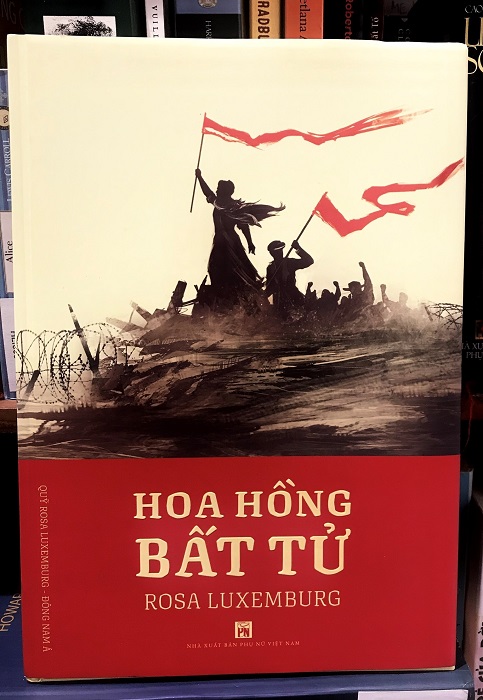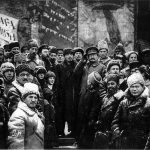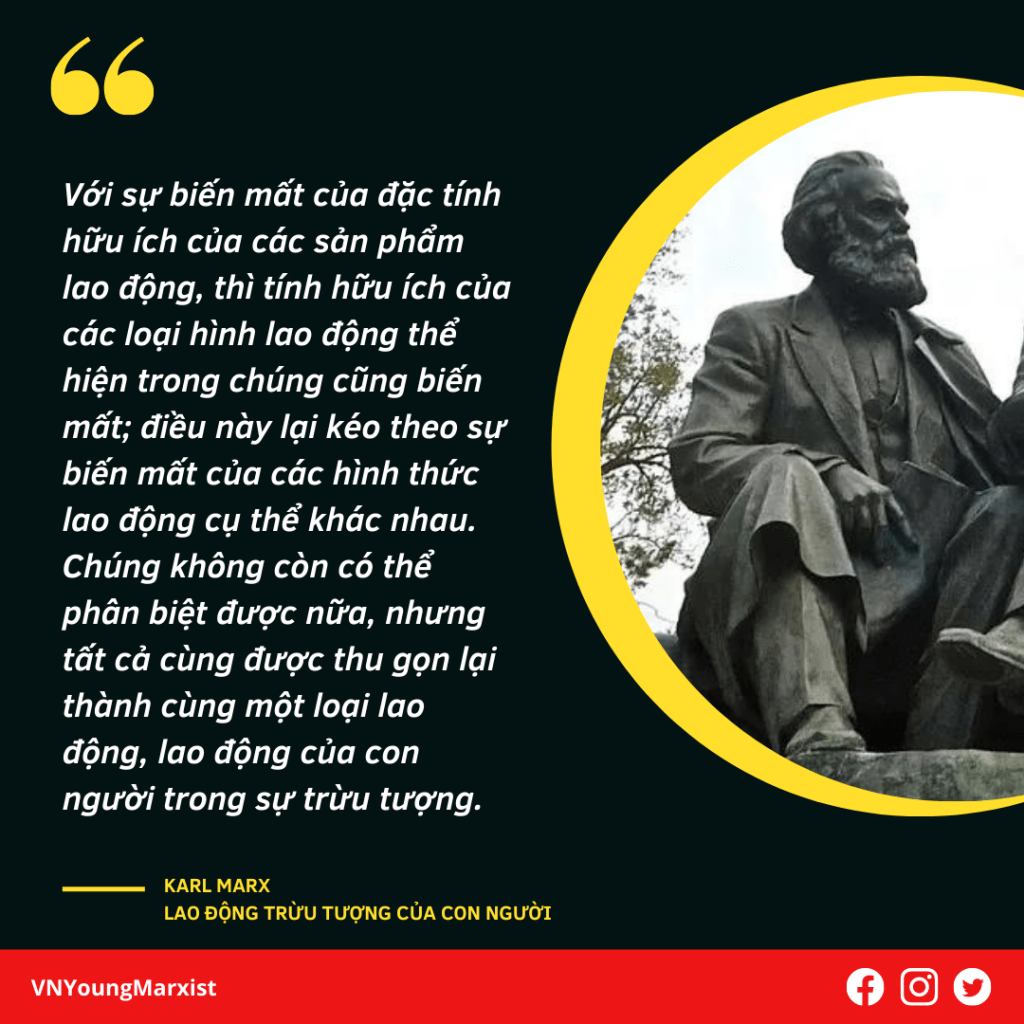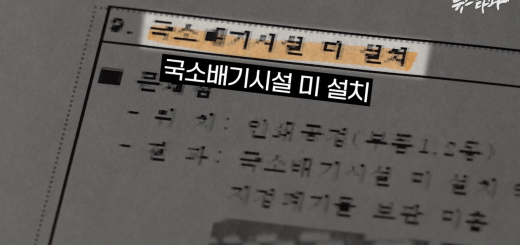From the appearance of a Vietnamese novel about Rosa Luxemburg – Hoa hồng bất tử Rosa Luxemburg
From the appearance of
a Vietnamese novel about Rosa Luxemburg
Dang-Thanh Nguyen
A shorter Vietnamese version of this paper “Hoa hồng bất tử – Rosa Luxemburg” (on the same title book, 2022, ISBN: 978-604-348-431-1) was published in Khoa học và Phát triển [Science and Development: the weekly newspaper of Vietnam Ministry of Science and Technology of Vietnam] no. 22 (1190), June 2, 2022, pp. 22.
Prologue
The suggestion to write this book review came from an editor of the “Reading” column of Khoa học & Phát triển, with whom I have a long-standing working relationship since 2019. On Sunday, May 20, 2022, Vietnam Women Publishing House invited her to a book launch, The Eternal Rose: Rosa Luxemburg was given at 9:00 on Monday, May 23, in the first-floor hall of building C at Hanoi University. Vietnam Women Publishing House, Rosa Luxemburg Stiftung Southeast Asia – Hanoi office, and the German Department of Hanoi University collaborated to organize this event. She realized the possibility of a book review article and then contacted me to attend the event to receive the book as material. The book launching on May 20, which mainly focused on the heroic and inspirational aspects of Rosa Luxemburg, did not satisfy me. I intended to approach things differently. She suggested I be honest in my review if the book was not good.

I finished reading the book that afternoon, following which I wrote the editor the outline of the article: “This is a good book to review. I just finished it this afternoon. I found out that this book continues the tradition of novels on socialist leaders, and in Vietnamese, there are two books The youth Karl Marx: the tireless traveller and The young Lenin. But the difference between the book on Rosa and the two books above is: 1) Vietnamese writers do not translate but write their language, and 2) the book on Rosa is intended to be a picture book for adults rather than a complete text. This book has finished two systems of Vietnamese books on Rosa Luxemburg: 1) writing her biography (there are two books, published in 1983 and 2010); and 2) novelizing. Regarding the novel’s quality, I thought it was dramatic and highlighted some of the principles Rosa Luxemburg supports: 1) freedom of speech, 2) taking into account the potential use of revolutionary force.” She agreed with my outline and requested me to write early so that the article would appear in the following Thursday’s issue.
I searched for and read the above sources from Tuesday, May 24, to Friday, May 27. Among the four books I have listed, I found two at the Hanoi Library, one at tủ sách Cái Giếng [Well-bookstrore: a private library on human rights], which allowed the reader to borrow freely, and the other in Luxemburgust Vietnam. The following day, Saturday, May 28, I sent her the article. The editor emailed me on May 30, 2022, asking for certain updates and changes, and I replied that same day so her could send it to the printer soon. The printed edition was finished on Wednesday, June 1, and on Thursday, June 2, 2022, it went on sale. The author then translated it into English.
The goal of this book review is to contextualize the novel about Rosa Luxemburg into the set of novels on socialist leaders which appeared during the high socialism epoch in Vietnam and add it to the reference of Vietnamese-language work that currently exist about Rosa. This book review is indeed a critical assessment of a socialist resource’s aspect of Vietnamese publishing, which can be accessed by the average person today. Future studies may expand on this insight.
Rosa Luxemburg (1871-1919) w as a revolutionary and co-founder of the Communist Party of Germany, an erudite Marxist scholar whose most famous work, The accumulation of capital: a contribution to an economic explanation of imperialism. She was born into a poor, minority Jewish family in Poland, a colonial of the Russian state, and grew up with a rare malformation of her legs. Her childhood was isolated, and she had eternal thoughts about injustice between human beings.
as a revolutionary and co-founder of the Communist Party of Germany, an erudite Marxist scholar whose most famous work, The accumulation of capital: a contribution to an economic explanation of imperialism. She was born into a poor, minority Jewish family in Poland, a colonial of the Russian state, and grew up with a rare malformation of her legs. Her childhood was isolated, and she had eternal thoughts about injustice between human beings.
Trần Minh Tuấn novelized her life in the Vietnamese book The Eternal Rose: Rosa Luxemburg [Hoa hồng bất tử: Rosa Luxemburg]. Before this publication, in Vietnamese there were two books about her. The first is Rosa Luxumburg of Dominique Desanti, translated by Ngô Mạch Đắc, Vietnam Women Publishing House, 1973, 156 pages. The second is the work of Trần Đương, Rosa Luxemburg: the symbol of faith and courage [Rosa Luxemburg: biểu tượng của niềm tin và lòng quả cảm], Culture – Information Publishing House, 2010, 228 pages. They both are biography books, in which the work of Dominique Desanti focuses on Rosa’s extraordinary life as a woman. In contrast, the work of Trần Đương represented the life of a person who had an ideal and persistently fought for it. The eternal rose contrasts those two books in the genre. It is a novel that, according to author Trần Minh Tuấn, “does not attach great importance to the transmission of information” (pp. 15) but wants readers to accompany the main character Rosa, to feel and to think with her.
Publishing novels of worldly communist leaders in 19th and 20th centuries is a tradition in Vietnam, notably with two books on Karl Marx and Vladimir Ilyich Lenin. There were 1) The youth Karl Marx: the tireless traveller [Tuổi trẻ Các Mác: người đi đường không biết mỏi], by Russian writer Ê-lê-na I-li-i-na, translated by Nhữ Thành (i.e. enormous Vietnamese philosopher Phan Ngọc), famous linguist Cao Xuân Hạo and literary critic Trần Khuyến, Young Publishing House, 1969, 426 pages, 2) The young Lenin, by two Russian writer N. Net-svô-lô-đô-va và L. Rê-znit-sen-cô, translated by Nhữ Thành and Trần Khuyến, Young Publishing House, 1970, 430 pages. The eternal rose indeed belongs to this tradition, therefore, has two similarities. First, those three books have been reprinted many times, an uncommon practice of Vietnamese publishing. Young Publishing House reprinted The young Karl Marx seven times in 1975, 1978, 1981, 1983, 1987, 1998, and 2004. The young Lenin was reprinted by Young Publishing House three times in 1977, 1983, and 1986. The novel on Rosa Luxemburg was first published in 2021, then immediately reprinted the following year, 2022, and is expected to be reprinted. Second, the novels about Rosa and Lenin strategically use illustrations so that the reader can visualize the process of two main characters.
The novel about Rosa contrasts two novels about Marx and Lenin in the operations of the novel genre. The three authors of the two novels about Marx and Lenin had much effort to understand to invent natural and social contexts and systems of supporting characters which surrounded the two main characters. In the novel on Rosa, on the contrary: the main character is almost the only living character. The context that author Trần Minh Tuấn invented is indeed a white background, for Rosa finished her necessary end. That is why dialogues, which consecutively appeared in the two novels of Marx and Lenin, were absent in the novel of Rosa. There were pure monologues of Trần Minh Tuấn, and two quotes from Rosa’s works at the novel’s beginning and end.
The contrast in the choices of authors of the three novels seems to be because of two different purposes. The three author of books on Marx and Lenin wanted to reconstruct their childhood and adolescent ages, which was the duration that personality was shaped. Therefore they were forced to invent a series of conversations to express real interactions between individuals. As a Marxism tradition, a human can only form his personality through those interactions, i.e., necessary social relationships. On the other hand, the author of The eternal rose represented Rosa as an isolated minority from an early age. Rosa, through her fate, knew social contradictions, following her ideal – that Trần Minh Tuấn emphasized – freedom in relationships between human beings. “Freedom – Rosa wrote in 1918 manuscript The Russian revolution, which was only published three years after its author’s death, 1923 – is always and exclusively freedom for the one who thinks differently. Not because of any fanatical concept of “justice” but because all that is instructive, wholesome and purifying in political freedom depends on this essential characteristic” (pp. 148).
The eternal rose was appeared, then demonstrated the absence of Vietnamese translation of Rosa’s crucial books. (Lý Hoàng Minh Uyên, or Sally Mju – a Luxemburgist researcher and activist in Ho Chi Minh City, and also a founder of Vietnam Marxist Group – has translated Rosa’s 9 short articles: https://www.marxists.org/vietnamese/luxemburg/index.htm). Rosa, for example, as an outstanding political and economic scholar – a discipline that clarifies her understanding of social contradictions, thereby towards her ideal of freedom – has a great book that was frist printed in 1913, The accumulation of capital: a contribution to an economic explanation of imperialism. She argued that capital accumulation in capitalist societies did not come only from working days in factories and offices but also in seemingly non-capitalist relationships. Her intuition was followed by scholars, notably a Marxist feminist, Silvia Federici. Federici concretized that one of the seemingly non-capitalist relationships is unpaid labour power of housewives. Women produced physical, psychological, and sexual care labour for men so that they could reproduce their labour power for a new working day. As Rosa’s successor, Silvia Federici is also absent in Vietnamese.
Bản tiếng Việt: https://khoahocphattrien.vn/kham-pha/hoa-hong-bat-tu-rosa-luxemburg/20220603123835456p1c879.htm
Mèo Mju kêu meo meo


















